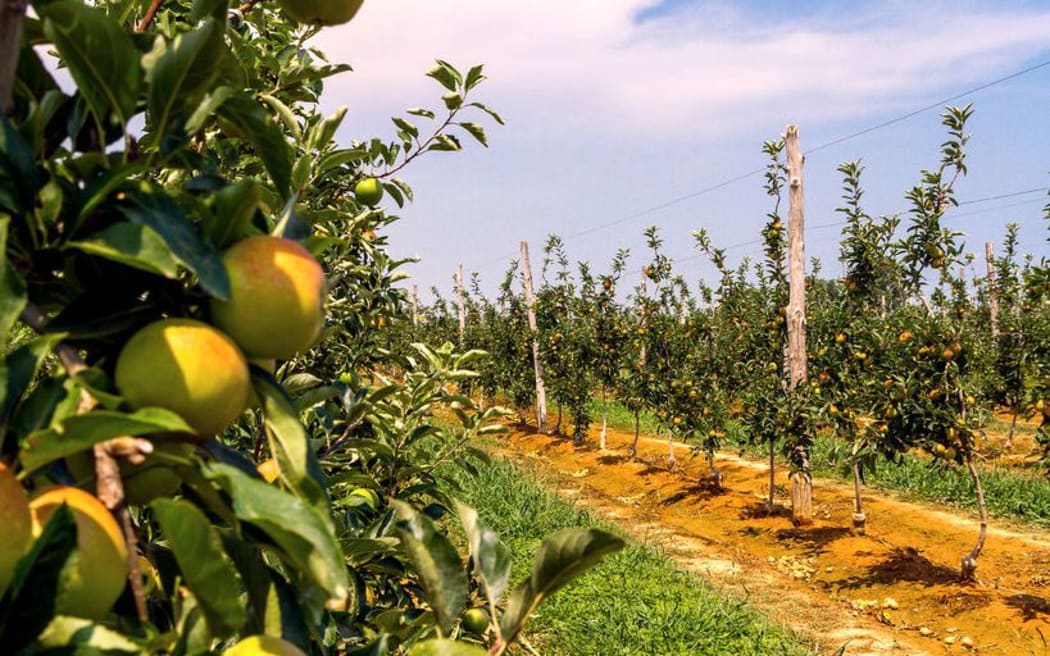The pipfruit industry is clamping down on exploitation of its workers as overseas customers boycott suppliers they suspect of being involved in slavery.

Pipfruit companies are independently audited to ensure their products are produced under fair labour standards, the industry group says Photo: 123rf
Supermarkets overseas, particularly in Britain, Europe and the west coast of the United States, are increasingly cancelling contracts with suppliers who cannot prove they don't exploit their workers, the Ministry of Business, Innovation and Employment (MBIE) says.
Pipfruit New Zealand business development manager Gary Jones agreed it was big challenge if the industry was to retain lucrative markets in Britain and Europe.
"We have to be...squeaky clean," Mr Jones told Nine to Noon.
"We're the most expensive fruit, as I've said, on the supermarket shelf. If we want to command those premiums - we have proprietary varieties with our breeding programmes, so new varieties, new products - we have to be very, very attuned to what the supermarket wants."
Mr Jones said in mosts cases what the supermarket wanted was being driven by its customers, who were increasingly demanding products that were environmentally sustainable and had been produced in a socially fair manner.
In the United Kingdom, that focus had been given an even bigger boost by the British Modern Slavery Act which required strict labour standards as part of product quality.
Mr Jones said the pipfruit industry now had an international standard to comply with and individual growers were independently audited to ensure their products had been produced under fair labour standards.
"If we don't meet a satisfactory level of compliance to those private standards then we just can't sell to those retailers. Of course that can be commercially catastrophic for any particular business."
The general manager of employment services at MBIE, George Mason, said it was good the pipfruit industry had systems in place to prove it was not exploiting workers but other horticultural and agricultural industries had more to do.
"The challenge for them is to make sure they have systems and processes in place that provide transparency and assurance that everyone who works in those sectors receives all of their rights and - as Gary's pointed out - meeting the expectations of customers, which can actually be much higher than the requirements of New Zealand's labour laws."
Mr Mason said, for example, the kiwifruit industry now understood it also needed to be vigilant about labour practices to satisfy its consumers.

